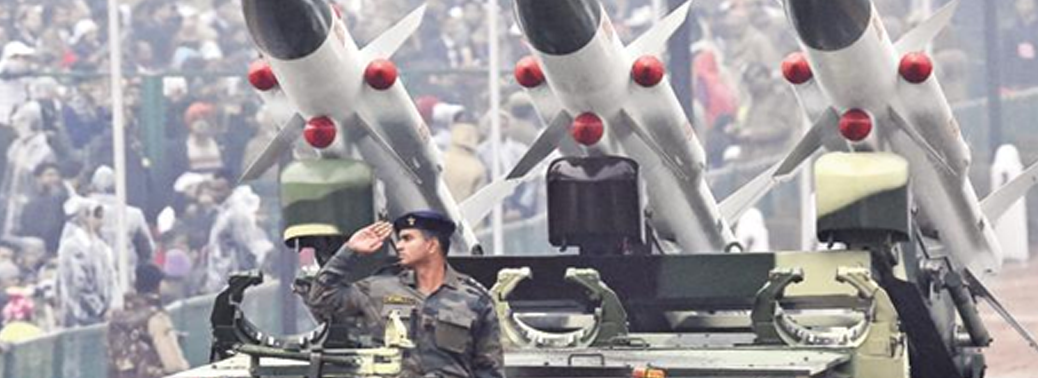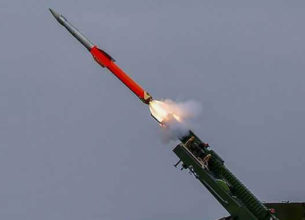DRAFT DEFENCE PROCUREMENT PROCEDURE (DPP), 2020
21, Mar 2020

Prelims level : Policies
Mains level : GS-II Important aspects of Governance, Transparency and Accountability, e-governance- Applications, Models, Successes, Limitations, and Potential; Citizens Charters, Transparency & Accountability and Institutional and Other Measures.
Why in News?
- Defence Minister recently released Draft Defence Procurement Procedure (DPP), 2020 which will come into effect from April 1, 2020.
What is Defence Procurement Procedure 2020?
- The Defence Procurement Procedure mainly contains processes that need to be followed to streamline and simplify defence procurement procedures and ultimately achieve the objective of self-reliance in meeting all the security needs of the Indian Armed Forces by promoting indigenous design, development and manufacture of Defence weapon systems and, platforms in a time-bound manner without any delays.
- The draft of DPP 2020 has been prepared by a Review Committee headed by Director General (Acquisition) based on the recommendations of all stakeholders, including private industry.
- In order to accrue advantage of domain specialisation of various subject matter experts, eight sub-committees headed by Lt Gen/equivalent officers were constituted to assist the review committee.
- The first DPP was promulgated in 2002 and has since been revised a number of times to provide impetus to the growing domestic industry and achieve enhanced self-reliance in defence manufacturing.
What are the Major Changes Proposed?
- Indigenous Content Ratio hiked
- In view of the experience gained by the domestic industry, the Draft proposes increasing the Indigenous Content (IC) stipulated in various categories of procurement by about 10% to support the ‘Make in India’
- A simple and realistic methodology has been incorporated for verification of indigenous content for the first time.
- Use of raw materials, special alloys and software incentivised as use of indigenous raw material is a very important aspect of ‘Make in India’ and Indian Companies are world leaders in software.
- Assurance of procurement on a single vendor basis from Aero Engine manufacturing unit and chips from FAB manufacturing units established in the country.
- New Category Buy (Global – Manufacture in India) has been introduced with minimum 50% indigenous content on cost basis of total contract value. Only the minimum necessary will be bought from abroad while the balance quantities will be manufactured in India. This would be in preference to the ‘Buy Global’category as manufacturing will happen in India and jobs will be created in the country.
- Leasing introduced as a new category
- Leasing has been introduced as a new category for acquisition in addition to existing ‘Buy’ & ‘Make’ categoriesto substitute huge initial capital outlays with periodical rental payments.
- Leasing is permitted under two categories i.e., Lease (Indian) where Lessor is an Indian entity and is the owner of the assets and Lease (Global) where Lessor is a Global entity.
- This will be useful for military equipment not used in actual warfare like transport fleets, trainers, simulators, etc.
- A new Chapter is introduced for procurement of software and systems related projects as in such projects, obsolescence is very fast due to rapid changes in technology and flexibility in the procurement process is required to keep up with the technology.
- A new Chapter is introduced for Post Contract Management to facilitate and provide clear guidelines for issues arising during the contract period as typically Defence contracts last for a long period.
- Timelines for procurement reduced by reducing the process for accord of Acceptance of Necessity which would be single stage of projects less than Rs.500 crore and in case of repeat orders. Trial methodology and Quality Assurance Plan to be part of RFP.
- Field Evaluation Trials to be conducted by specialised trial wings and the objective of trials will be to nurture competition rather than elimination for minor deficiencies.
- A comprehensive Chapter introduced for ‘Make’ to cover procurement from manufacturers in India including start-ups and innovators and from research projects of DRDO.
- Product support
- The scope and options for Product Support have been widened to include contemporary concepts in vogue, namely Performance Based Logistics (PBL), Life Cycle Support Contract (LCSC), Comprehensive Maintenance Contract (CMC), etc. to optimise life cycle support for equipment. The capital acquisition contract would normally also include support for five years beyond the warranty period.
- Modified offset guidelines proposed to give emphasis on export of products rather than components. Higher multipliers proposed for procurement from MSMEs and units established in Defence Industrial Corridors. Higher multipliers proposed for Transfer of Technology to private Companies / DPSUs / OFB and DRDO.











